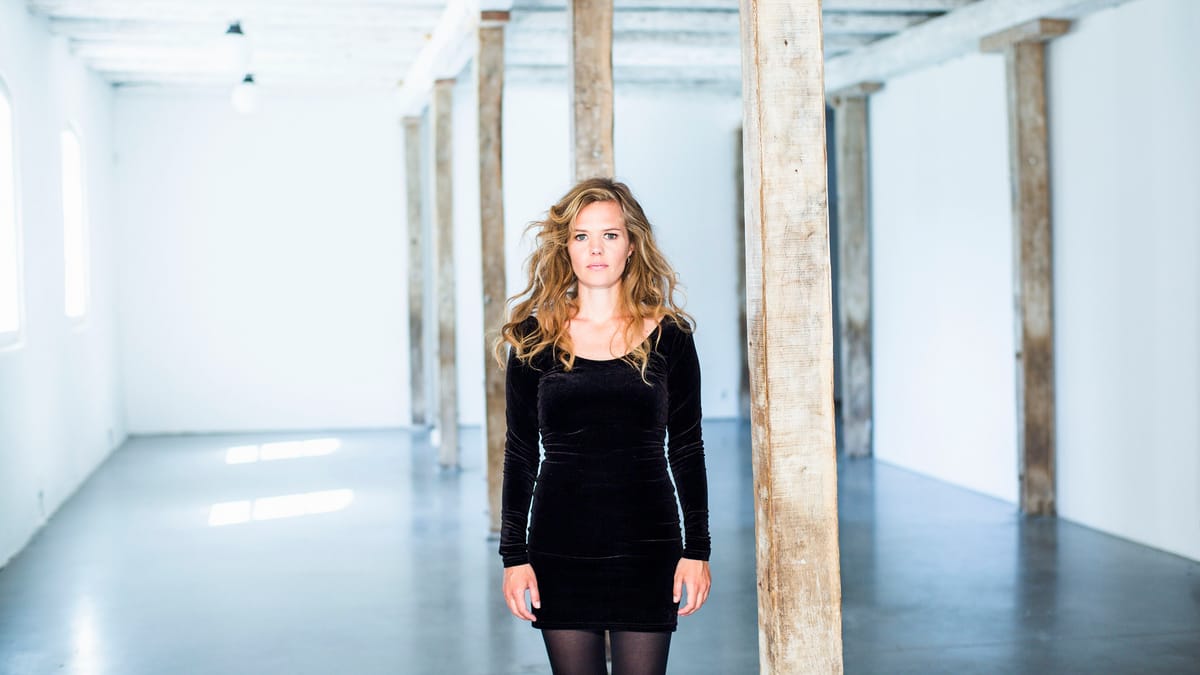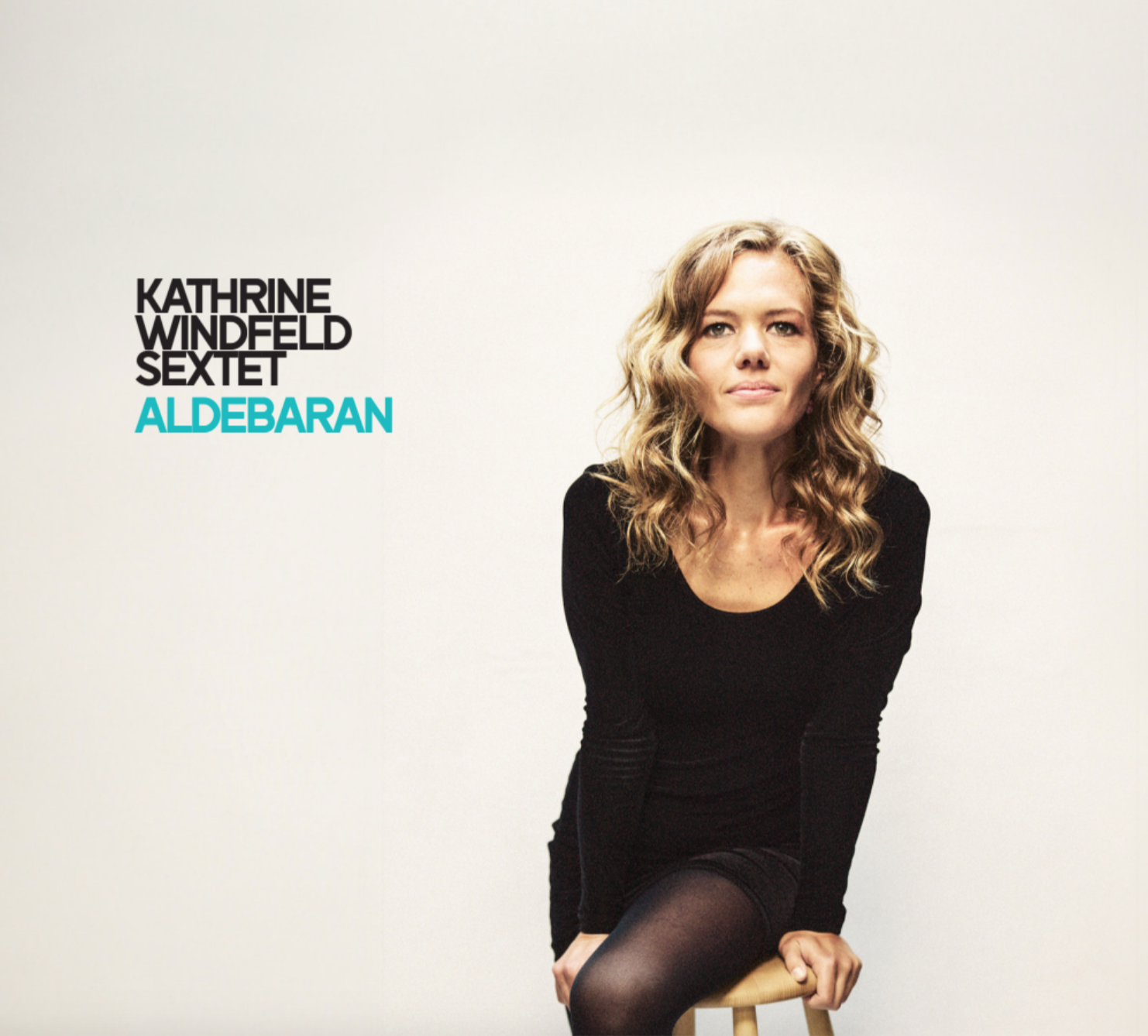Kathrine Windfeld: a musical journey from big band to sextet

The art of synchronizing the creative process with the rhythms of life: in the musical universe, each album represents a snapshot of an artist's journey, capturing their thoughts, emotions, and experiences. The melodies are born from intimacy and become collective, turning into the soundtrack of many lives. From now on, both composers and listeners share the spacetime under the same tempo.

Some words are destined to obtain invaluable meanings due to the context in which they are used. For some, it is a star, while for others, it is an album to understand the artistic evolution of a pianist. 'ALDEBARAN is my most sensitive album. I love to write powerful stuff, and I still write it, but maybe I've become more mature somehow. For now, I think it's okay, and it feels great to write and play more emotional tunes because I have a lot of energy,' reflects Kathrine Windfeld, who - for the first time - released an album with her sextet. 'In many of my big band albums, I thought it was nice to write a lot of powerful tunes, and I still love this adrenaline, the fast-moving power, and the surprises. But this album is my most sensitive, and it feels good to feature some ballads. There are four soft tunes on the album, and that's the big difference from my previous projects. I think the audience can hear that I've grown as a composer: I have focused on sensitivity and versatility. I've tried to put all the flavors into the music, so I hope people think that all feelings, all seasons of the year, and all textures are represented on this new album.'
ALDEBARAN is a star in the zodiac constellation of Taurus. For Kathrine, it is a powerful and mysterious word. The truth is that from now on, it's a title that allows the listeners to approach a new musical language from the Danish composer. 'This ensemble has only existed for four years; it is a fantastic band. When I write for the sextet, I have a clear picture of the different musicians in mind. I know exactly how the tenor player sounds. When I first played with this constellation, I felt these guys understood me 100% and more. I give them the tunes, and I hardly need to explain anything. They understand my visions and ideas and take the music to the next level."
In the musical evolution of Windfeld, there is a critical aspect that remains static. Her leadership is something that predominates regardless of the size of the ensemble. 'I love to play with my big band; there are a lot of colors, and it's like writing a movie: stories on the big screen and long epic stories. But with the sextet, there's a certain flexibility, and it's more transparent.' At times, the instruments seem to dialogue, while there are moments when they are positioned in parallel, creating a deep space where it is possible to navigate. 'The rhythm section has a big role here; you hear the bass much clearer and the drums. If I give a cue, there are only five persons who need to see me, and then we can do something spontaneous.'
Musicians can craft sonic landscapes that resonate with the temporal flow of life, infusing their compositions with the cycles of nature and the mysteries of the cosmos. Under this context, the music of ALDEBARAN is no exception. 'I think all human beings are interested in the things that we can't comprehend, like the deepest sea and the universe. These places make us wonder and also awaken our fantasy because we can't grasp or see them; they're just an open source of fantasy.' Through eight songs, Kathrine reveals her curiosities and inspirations. At all times, her piano is the vehicle with which she navigates the different cardinal points. 'When you compose music and play, you have to have a very alert imagination; you have to be in contact with your creativity and inspiration. So, I think that's why artists are drawn to these incredible spots that we can't discover. We have to make up pictures of them in our minds. Like when I write music, I have pictures in my mind, but it's not something that I can see; it's something I can feel and imagine.'
Music is like the glue between my body and my life. If I don't play music for a long time, I feel very transparent and totally homeless. When I don't play music, I can really tell what it means to me because I feel so empty
In all the beauty behind the concepts that surround this project, there's a word that needs to be highlighted: tension. 'I don't want to be a mainstream artist because as an artist, I can't change the world. I can't change the fact that there's so much cruelty in the world, but at least I can share with my music that I'm not satisfied with the way things are. So, if I were a mainstream artist and just wrote some very cozy dinner tunes, then I would somehow state that everything is cool and life is nice. I want to reflect on the desperation, sadness, and inequality on Earth. Of course, if I really wanted to change the world, then I should not be a musician; then I should be a doctor or a politician. But I have to be a musician; that's what I need to do.' The tension that Kathrine captures in her compositions begins in the form of a dialogue between the instruments and transforms into a feeling that can be accessed by listening to the album.
For Kathrine, each song has its color; in her mind, green predominates over the others. The sea, Jupiter, elusive dreams, and a Ukrainian city are elements present in her compositions; however, none of them could exist without a fundamental variant: improvisation. 'I love improv; I love the color and the sound of jazz. When I played classical piano, I missed the imperfect part. Of course, we aim to be ambitious, but things don't have to be perfect. I'm very inspired by classical music and the discipline, but the performative part of jazz is perfect for me because you have the conversation: the strictness of the conversations, and then it explodes into the solos. So that's why I have big groups; I have my big band and my sextet because I love to write big fairy tales.'
The sound that emerges from this sextet must be analyzed under the individual capacities of those who form it, but above all, under the direction of the one who conducts the baton. 'They master the ballads and the fast-paced, furious free stuff. So, they are capable of doing almost anything. They are not only technical monsters; they can play very fast - but most importantly - they have a deep spirit. That's what I'm looking for: musicians with a big sound and technique. But first of all, they need to understand me.'
Kathrine Windfeld shows us that dynamism can be a constant when creating. ALDEBARAN is positioned as a safe place to which we can return when we want to end the monotony. In it, we join a dialogue that travels between unexplored places and genuine concerns. A sextet that makes us wonder, how do they sound when they play live?